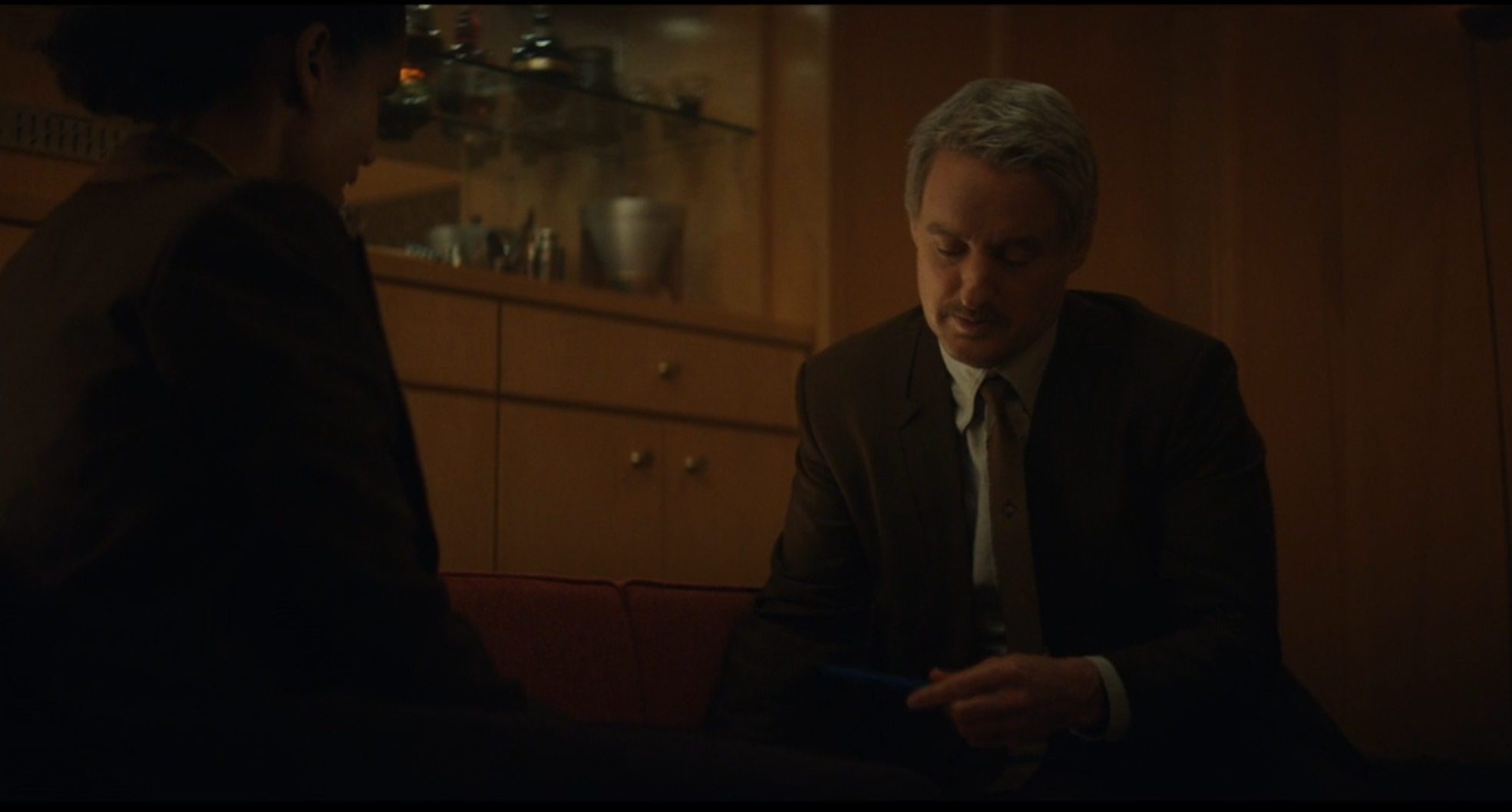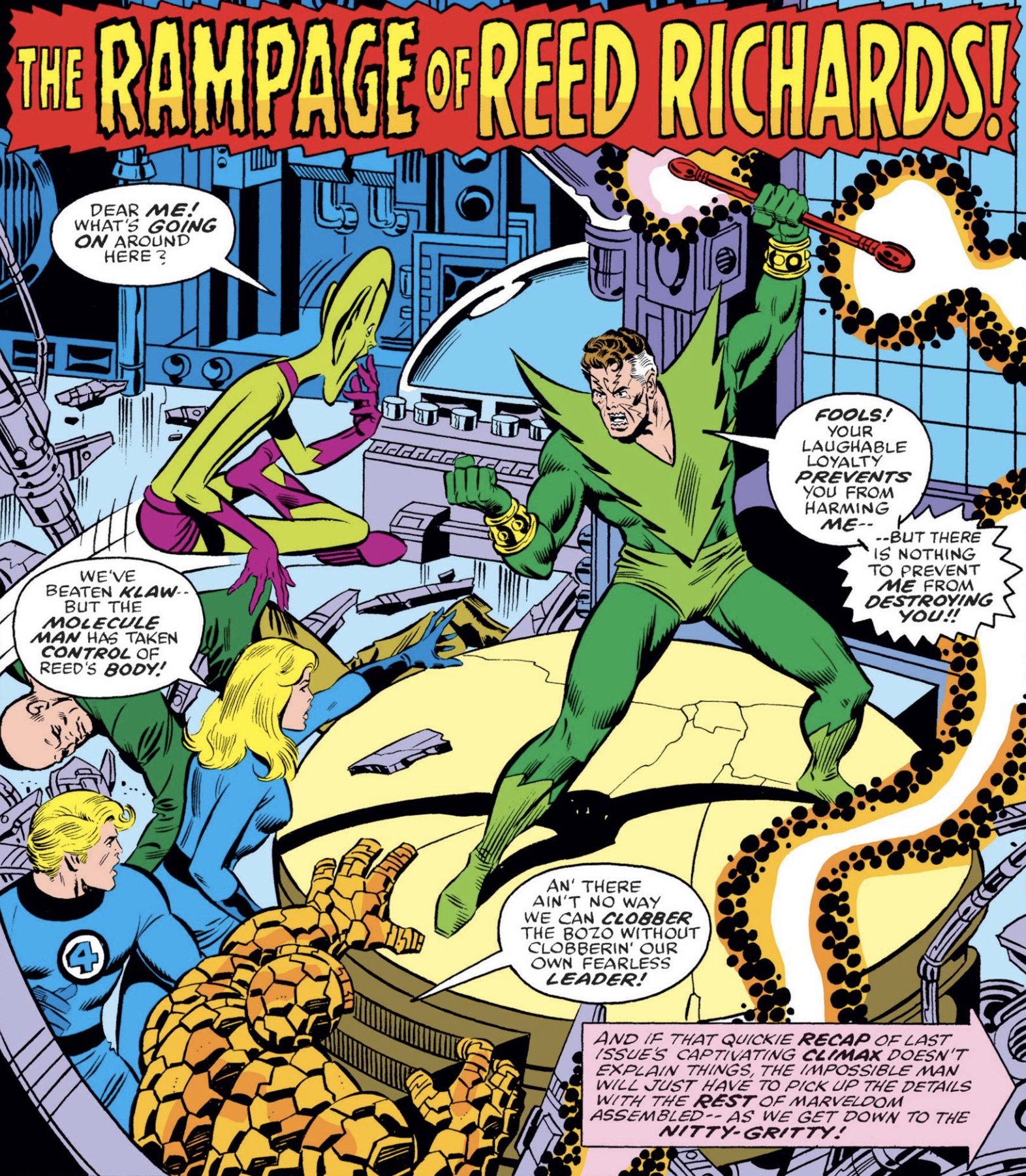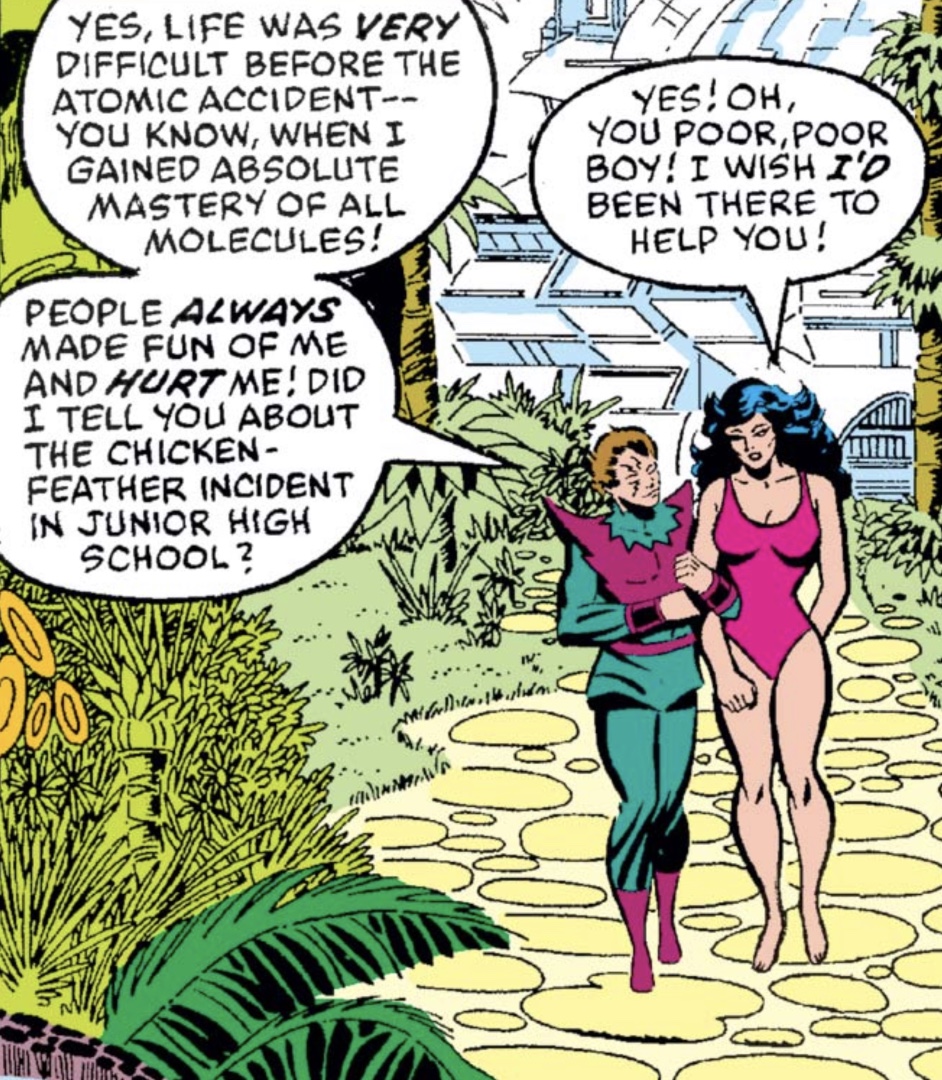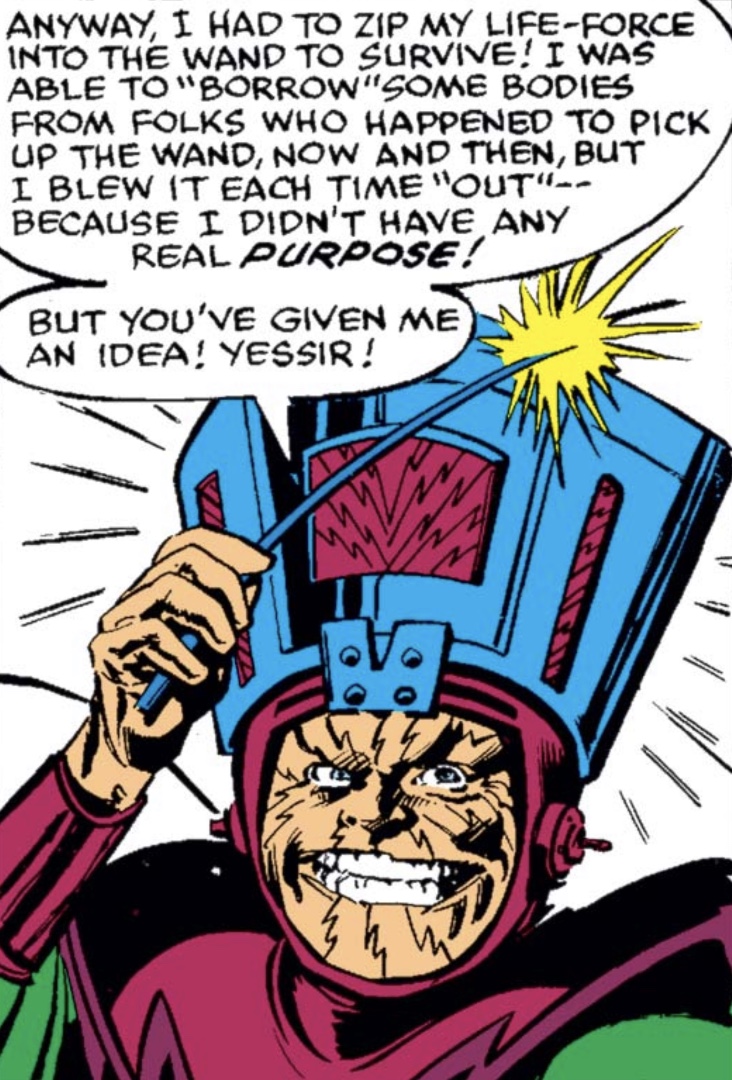How a Franklin D. Roosevelt High School pen could hint at a major Marvel villain in Loki and the MCU
Could a vague Loki Easter egg point to an all-powerful Marvel Comics character?
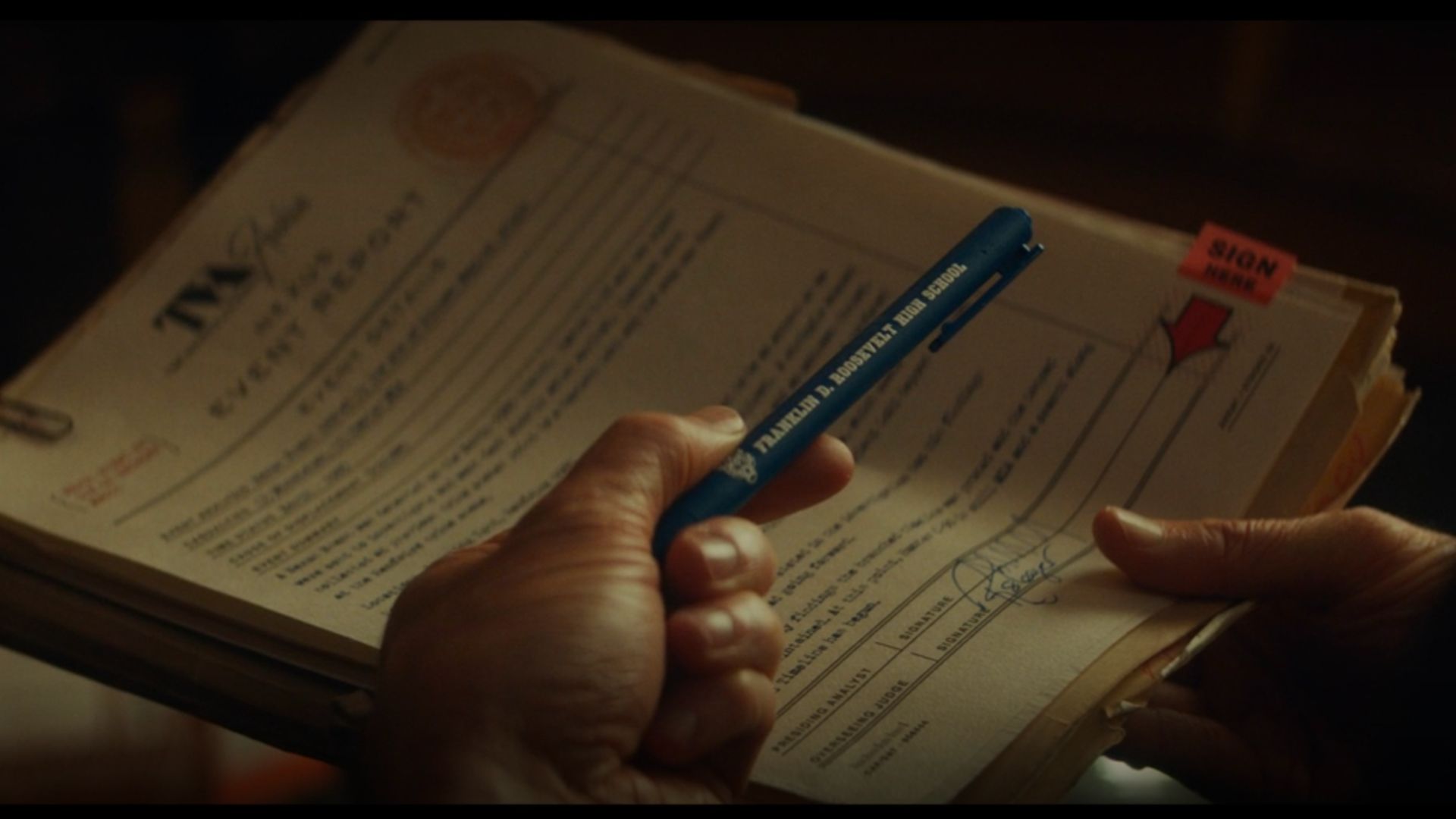
"The pen is mightier than the sword" is the famous adage attributed to English author Edward Bulwer-Lytton in 1839. And Disney Plus's Loki may be taking that old adage to incredible extremes.
Episode 4 of Marvel Studios' third streaming series is now in the books, and we've now learned things about the Time-Keepers and the TVA that has changed the entire series and may also be significant to the future of the MCU.
And a pen makes a return appearance and it may be at the center of it all.
Yes, a pen…
… that just may hold the truth about all the series's unanswered questions.
Spoilers ahead for Loki episode 4.
The scene in question comes about a third of the way through the second episode when Owen Wilson's Mobius M. Mobius visits Gugu Mbatha-Raw's Ravonna Lexus Renslayer's office to get her to sign off on a report on a TVA field operation Loki was a part of from earlier in the episode.
The outwardly light-hearted scene foreshadows the true nature of the TVA in the MCU (or at least what we know so far) and includes a moment centered around that aforementioned pen which has yet to pay off, but as episode 4 indicates, probably still will.
Get the best comic news, insights, opinions, analysis and more!
Because the TVA resembles a mid-century modern era version of the DMV (that's the US's infamously inefficient and bureaucratic Department of Motor Vehicles), Ravonna presents like she needs to sign paperwork for all of Mobius' field operations, which he has to then sign as well.
During the course of the exchange, Ravonna hands Mobius a pen. The scene already establishes that Ravonna has artifacts (what Mobius calls trophies) from his past field operations in the timestream, which she makes clear she gets to keep due to her position of authority.
And that little nugget of background information pays off immediately when Mobius takes instant notice of the pen … and makes certain Loki viewers do too.
Mobius remarks he doesn't remember the pen and indicates that it came from a past field operation, humorously teasing Ravonna about being aware of another secret TVA analyst he does not know (that she keeps "on the side"), but whom he suspects she also has a close professional relationship with.
If you've read the Newsarama explainer on the comic book inspiration for Mobius, then you already know in the comics there are an infinite number of him in the TVA. Sort of like The Matrix's Agent Smith, many TVA agents are in fact identical Mobiuses - though as with the version most known to comic fans, different versions of Mobius have different personalities, skills, and ranks in the TVA.
Bookmark that piece of information and the episode's hint of at least one other TVA field agent.
The first two episodes carefully established Mobius as having a dutiful but somewhat wistful regard for the TVA, his place in it, and his very existence. He's already learned he's just a variant of a normal human being that was mind-wiped to play his role, and not the creation of the Time-Keepers.
If he later finds out he's simply one of an infinite number of variants of himself all performing identical functions kept secret from him, the Loki writing room may be setting up a crisis of self-realization for Mobius that could be important down the line.
Of course, that's if Mobius survived being "pruned," which is possible considering Loki survived pruning in the same episode.
Loki and Mobius already began teaming up against the TVA as we previously predicted they would, and we don't think Mobius' story is over, or that the Loki-Mobius team-up has run its full course.
The other significant aspect of the scene is the writing on the pen, which is clearly shown to Loki viewers with a purpose.
The pen reads 'Franklin D. Roosevelt High School.' Now if you're a step ahead of us, a Google search might have already revealed to you there appears to be no significance to an FDR high school in the Marvel comic book or cinematic universes (Peter Parker goes to the fictitious Midtown High). And if there was, Marvel Studios probably wouldn't have been so blunt with the clue.
No, the always-clever and always-forward-thinking studio wants viewers doing a deep dive on this one, though bearing in mind red herrings that go nowhere are not out of the ordinary for Marvel productions.
To name just a few, WandaVision purposely sent viewers off on tangents involving the Grim Reaper, Mephisto, and the "aerospace engineer," all almost certainly on purpose. So let's all keep in mind Marvel could be doing the same here.
That said, while we don't see the writing again, the blue pen makes more appearances in episode 4. In the first scene with Ravonna and Mobius in her office Ravonna conspicuously waves it around while she's talking in close-up. In a second scene between them again in her office later in the episode just as we're learning Mobius has become suspicious of Ravonna, as seen above Mobius glances at the writing on the pen again (timestamp 25:04 to be exact).
Details like that are entirely intentional.
So to play Marvel's game, a solo Google search of "Franklin D. Roosevelt High School" indicates the most famous one is in Brooklyn, New York (which Marvel Studios is clearly aware of), and that's when things start getting interesting if you indulge in a few intellectual leaps…
Because there is a Marvel comic book character that hails from Brooklyn, NY, and of whom we even know a little bit about his high school history that fits right into the entire Loki-TVA world of timelines and Multiverses.
And his name is the Molecule Man...
Who is Molecule Man?
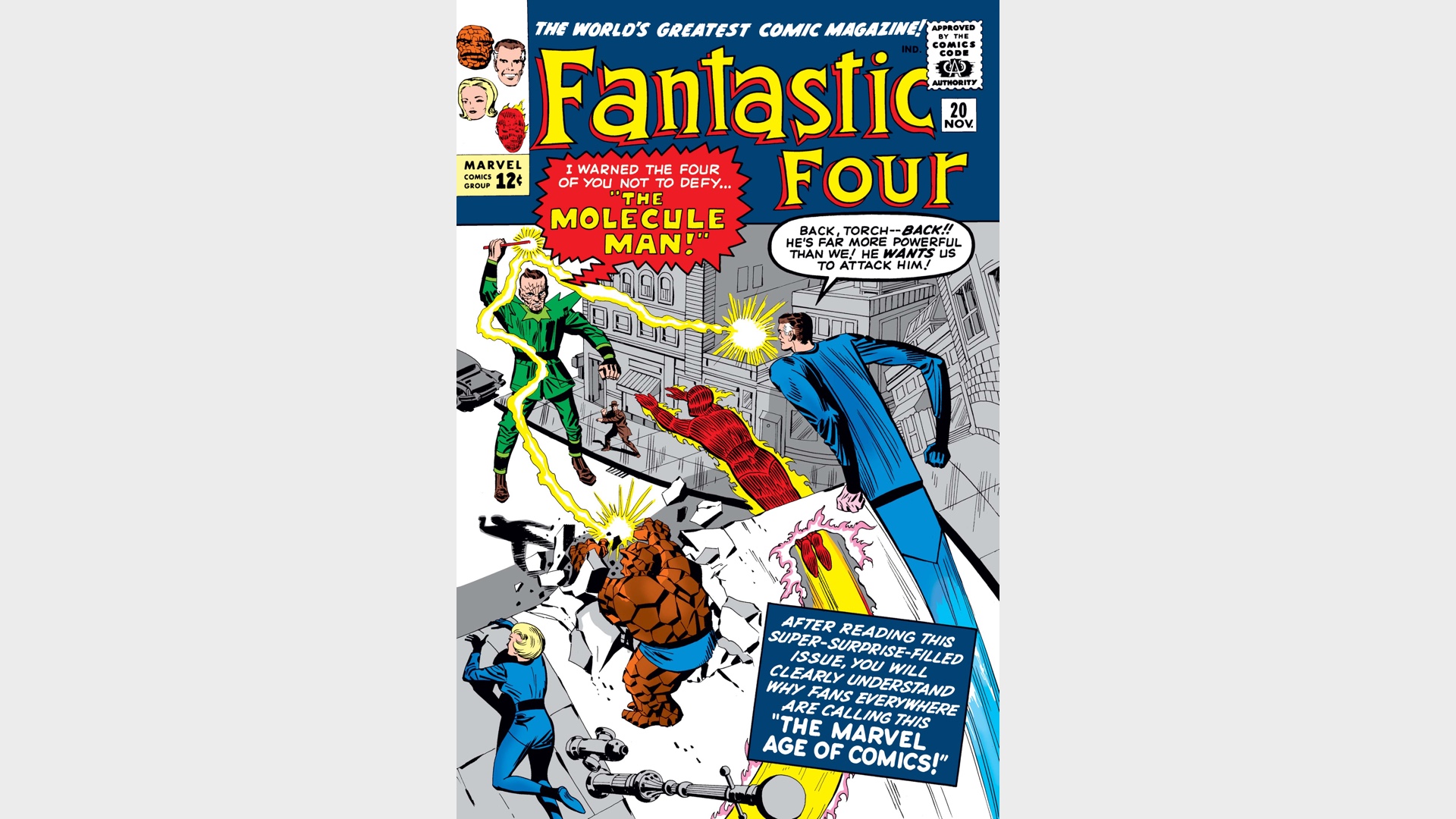
Molecule Man, AKA Owen Reece, is one of the most unique and interesting characters in Marvel Comics lore. He first appeared way back in 1963's Fantastic Four #20 as a custodian at an experimental nuclear facility, where he was bombarded with mysterious radiation that gave him the incredible power to psionically manipulate matter and energy down to the atomic level.
If that sounds extremely potent, like on a grand cosmic scale, just wait. You don't know the half of it (and neither did he, at the time). The 'accident' also had even more profound effects - we'll get into it.
Though his powers were initially restricted, with Reece unable to affect organic matter, this later turned out to be Reece's own limitation and not a limitation of his abilities. When Reece initially challenged the Fantastic Four, Uatu the Watcher recognized the potential of his abilities and intervened on the FF's behalf, leading to Molecule Man's defeat, after which he was trapped in an extra-dimensional space where his powers could not grow to threaten existence itself.
But Reece's powers did grow - to the point where he was able to bind his essence to the metal wand that once channeled his powers. The wand floated around the Marvel Universe for some time, with anyone who picked it up becoming Molecule Man themselves, with Reese's essence even once possessing Reed Richards.
Reese was eventually able to reconstitute his body into human form, at which point he fought the entire Avengers to a standstill - until Tigra was able to talk him down. With his massive powers intact and growing, Reese did what few villains are able to do and surrendered, deciding to retire and seeking psychiatric help and therapy with plans to settle down into a normal, non-super life.
Unfortunately, the Marvel Universe had other plans.
Molecule Man in the Marvel Universe
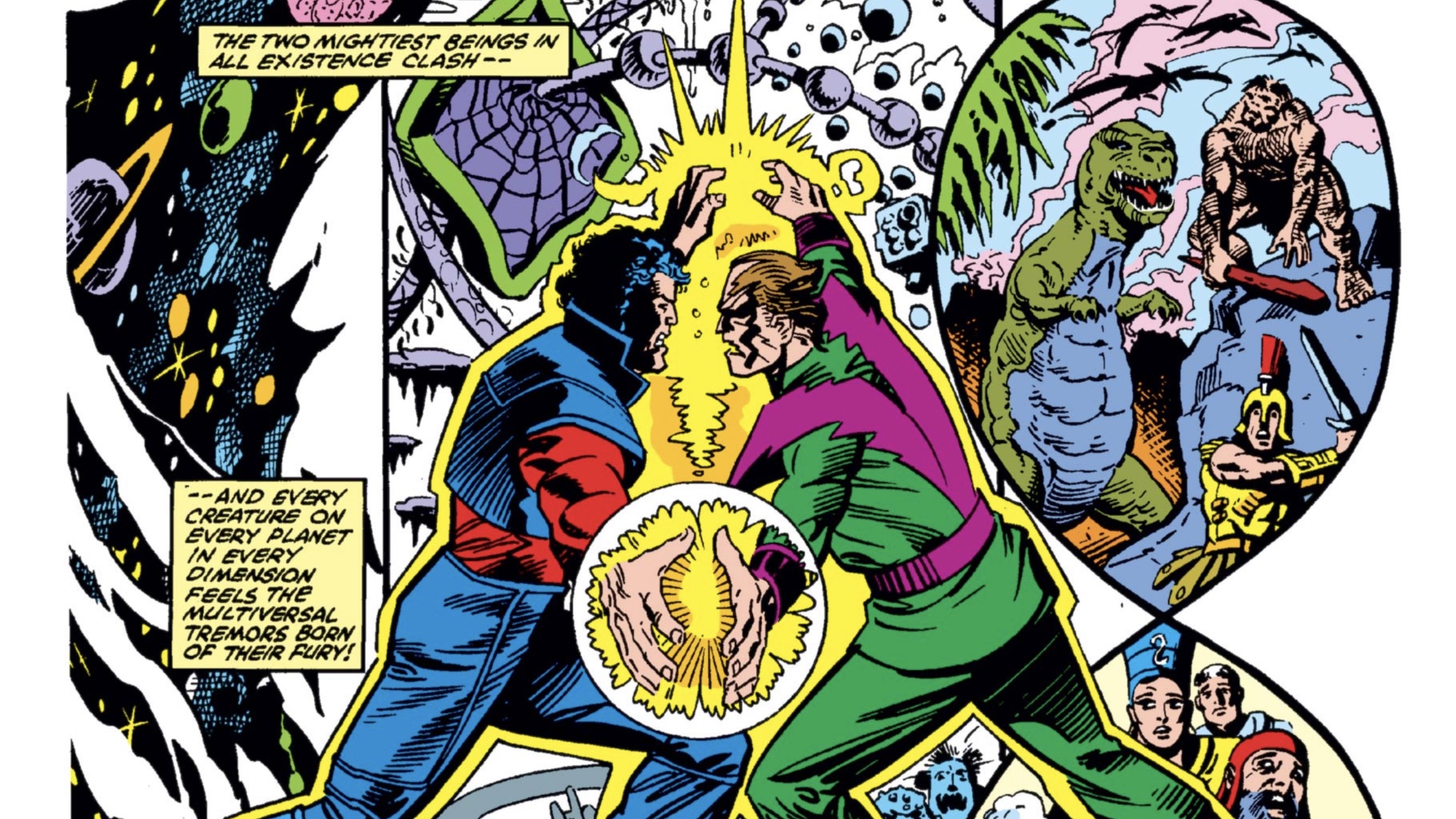
As it turns out, the accident that gave Molecule Man his powers also opened a wormhole to a space beyond the Marvel Multiverse that's home to the beings known as the Beyonders - who may or may not be directly responsible for creating the Multiverse itself. The creative energy in that universe gave Reece his abilities, and also connected him directly to the Beyonders.
One Beyonder became obsessed with the Marvel Universe, eventually summoning a collection of Marvel's greatest heroes and villains to an artificial place known as Battleworld, pitting the two factions against each other in a conflict designed basically for his own amusement - the original Marvel Super Heroes Secret Wars event.
When Reece was dragged into Secret Wars and out of retirement, he first sided with the villains. However, he wound up falling in love with Volcana, another supervillain present on Battleworld, with the two bonding over Reece having been an outcast in ... wait for it ... high school.
Here's the thing - that high school experience might be a little bit important. Because where did Owen Reece grow up and go to high school?
Brooklyn, New York.
Now, we can't say he definitely went to FDR High School - that info hasn't been revealed in comics. But we can say that Owen Reece has a unique and extremely important role in the Marvel Multiverse, which may also directly relate to Loki and the pen.
We'll get into that more momentarily.
At the end of the original 1985 Secret Wars, Molecule Man discovers his own power may rival that of the Beyonder, and unlocking his full potential, sends everyone home and retires to Denver with Volcana.
But once again, the Multiverse wasn't done with Owen Reece.
Time Runs Out

See, the Beyonder that the Marvel heroes and villains encountered on Battleworld in 1985's Secret Wars was just one of a full race of Beyonders. Though it's unclear whether they were somehow involved in the creation of Marvel's Multiverse, they were definitely behind giving Molecule Man his powers - something that is later revealed to have been totally on purpose.
While many denizens of the Multiverse have numerous counterparts in different realities, or some (such as the vaunted Nexus Beings) are unique in some way to their home existence, Owen Reece has a unique relationship with the Multiverse. In every single universe Owen Reece is the same person, with essentially the same life, always becoming the Molecule Man.
This makes Owen Reece one of the only multiversal constants in all of Marvel Comics - and that's all part of the Beyonders' plan to use their Molecule Man trap to destroy all of the worlds in the Marvel Multiverse one by one and start over.
Long story short, Doctor Doom decides that's not great, and using Molecule Man's powers, he defeats the Beyonders and saves the Marvel Universe - sort of. This kicks off 2015's Secret Wars event, a spiritual successor to the original, in which Doom creates his own Battleworld.
Eventually, Molecule Man betrays Doom and gives his reality-remaking powers to Reed Richards, who defeats Doom and goes on to use Molecule Man's powers, along with his son Franklin Richards' own reality-altering abilities to rebuild the Multiverse without the Beyonders' influence or their Molecule Man trap.
Everything is eventually restored, with some aspects of the Marvel Universe having been rewritten at Molecule Man's whim - including bringing Miles Morales, who Molecule Man befriended, into the mainstream Marvel Universe along with his family.
Molecule Man in the MCU
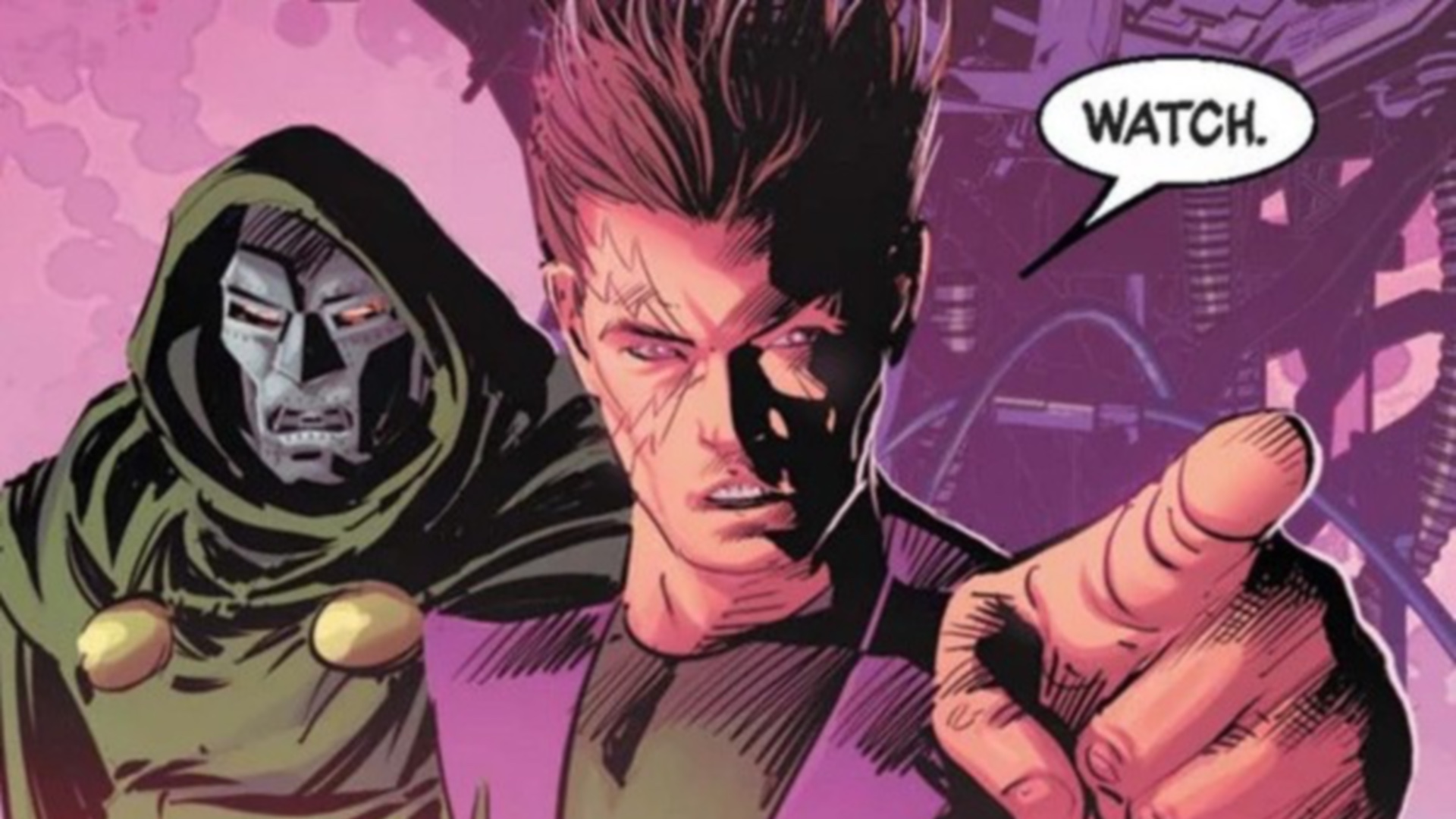
Here's where that pen comes in again.
As we said, we can't say for sure the pen actually ever belonged to Owen Reece - after all, there's no direct indicator that he went to FDR High School that we can take from the page. And he's never been an agent of the TVA in comic books.
But there are some factors that make it seem like Owen Reece/Molecule Man could be an important character in Loki and the MCU overall.
As revealed in the 1985 Secret Wars. we know for sure that Owen Reece went to high school in Brooklyn and that his experience in school was formative to who he became both before and after gaining his powers.
And for the moment, there is a significant power vacuum in Loki.
The power of the TVA is seen as immense, greater even than the Infinity Stones - and has dominion over all of time. But the seemingly cosmic power behind it - the Time-Keepers - was a cheap scam. There are no Time-Keepers.
And the TVA wasn't what we thought it was either. Only Ravonna (for the moment) holds the secret to its power and true purpose.
So who or what is so powerful that it can control time but would also need or want to create a Wizard of Oz-like front and an entire facade with the late-60s, retro DMV aesthetic?
There's also the question we've asked before, why are two British actors - Gugu Mbatha-Raw and Wunmi Mosaku - affecting American accents for their roles when it serves no seeming purpose? And while we're at it, why do all TVA workers look like human beings when the Marvel Universe is populated by a wide array of races of various appearances?
One possible answer is ALL of the TVA worker variants are plucked from a similar time and place from the experiences of whoever is really behind the power of the TVA ... and could that be someone be an American someone from Earth who went to or worked at a high school in Brooklyn?
And maybe a someone who appears so physically meek that the person created the fictional narrative of the ancient, grandiose cosmic Time-Keepers?
The pen might just be a clue, but there's another angle, far-fetched as it may be, worth mentioning.
But we can't help but think about not just the power Molecule Man possesses, but also the role he plays in the Marvel Multiverse - including the time period in which his essence was stored in a wand that took over those who wielded it.
Now, a pen and a wand aren't the same things. But they're really not that different at least in terms of shape - and a pen with a logo on it provides both a bit of an Easter egg and a more relatable object in which to potentially house Molecule Man's essence.
Why is the pen special or important? Maybe it's not, beyond being a keepsake for Ravonna. But if she's holding onto it because it has some level of power, it could be the key to unlocking the secrets of the MCU Multiverse in the same way Molecule Man did so in comic books.
Time will tell - and Loki is running out of it, so we'll have answers soon.
The TVA may think Loki isn't the star of the story, but he's had plenty of his own tales to tell. Here are the best Loki stories of all time!
I'm not just the Newsarama founder and editor-in-chief, I'm also a reader. And that reference is just a little bit older than the beginning of my Newsarama journey. I founded what would become the comic book news site in 1996, and except for a brief sojourn at Marvel Comics as its marketing and communications manager in 2003, I've been writing about new comic book titles, creative changes, and occasionally offering my perspective on important industry events and developments for the 25 years since. Despite many changes to Newsarama, my passion for the medium of comic books and the characters makes the last quarter-century (it's crazy to see that in writing) time spent doing what I love most.
